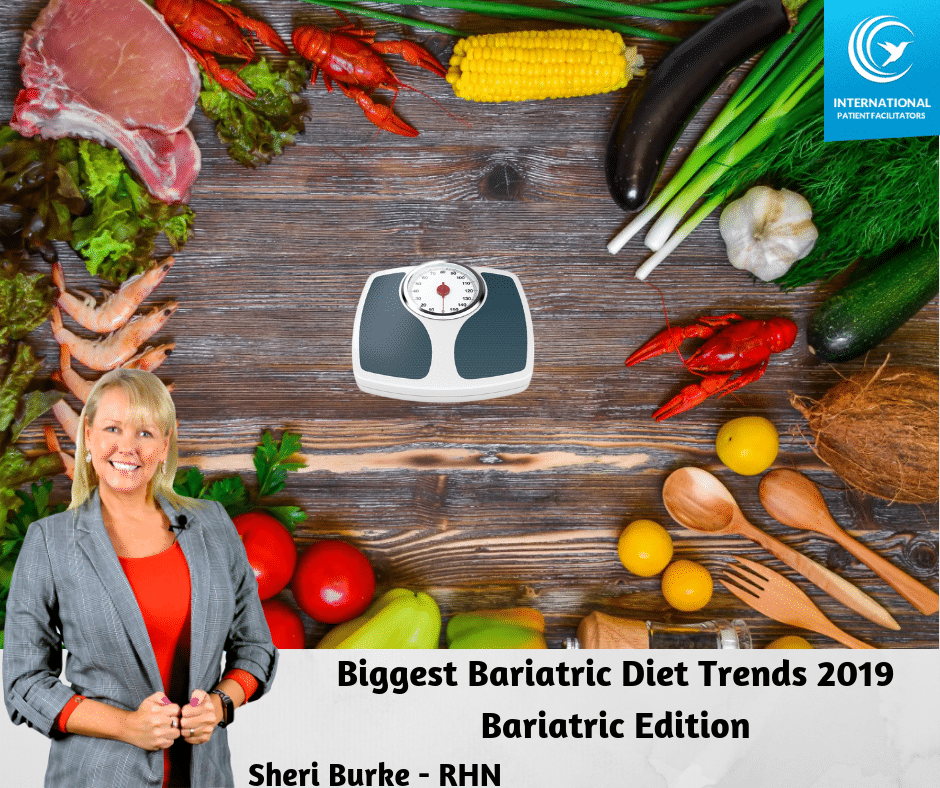This is a topic that is near and dear to me. I spend my days working one-on-one with clients discussing pre-op diets and postoperative guidelines. That’s how I spend half of my day. The other half of my day is spent working with clients who have had surgery and they are have either stalled, plateaued or they are in the midst of a bariatric re-gain.
These problems are real. These clients are real. It is my job to provide them with the nutritional education and information they require and to assist them to reach their goals and then to maintain them.
This is why I am always staying on top of the latest and greatest nutritional science. I need to know what works, and what does not work when it comes to helping our clients get to their weight loss goals and then maintain them long-term. I need to read the studies and understand what works and why it works.
Nutritional science is changing constantly. One day eggs are bad for us and the next they are good for us. One day we are to eat whole grains and the next day we need to stay away from them. What gives and why does the information change?
It is not possible to isolate a single nutrient’s effect in our body
Nutrition research, until very recently, focused on studying the role of single nutrients. They looked to single nutrients as acting like a “magic pill” for us to prevent disease. The newest researching is looking today at a different concept.
This new concept is food synergy. This means that nutritional researchers are looking at multiple nutrients working together. How do foods work together to build health and prevent disease. They no longer focus on separating nutrients and the newest studies focus on a person’s overall diet. Diet patterns have been shown to reduce chronic diseases. For example, eating fish, fruits and vegetables can lead to a reduction in blood clots.
So now that the research is changing, so are the food trends. What dominates 2019 as the most popular diet trends for bariatric clients?
What is the first trendsetter – this is gut health. Gut health research will also continue to gain momentum in the years to come. We are also seeing the trend of probiotics getting replaced by foods which can help to balance the gut and microbiome.
More of us will search for our probiotic-fix in the form of fermented foods and drinks. Foods which fall into this category are fermented foods such as, kombucha, sauerkraut, and yogurt. When our microbiome is balanced, we have a stronger immune system, digestion and detoxification. An imbalance of the microbiome may lead to a variety of diseases such as diabetes and obesity.
Important changes occur in our microbiome when we use antibiotics. We take antibiotics to kill bad bacteria but at the same time we also kill off good bacteria that resides in our guts. It’s always a good idea to follow up a course of antibiotics with a course of probiotics to help increase good bacteria in our microbiome.
The second trendsetter is Intermittent Fasting and Ketogenic Diet. We saw this trend in 2018 and it is progressing into 2019 with full steam ahead. Low carbohydrate diets work. When you add Intermittent Fasting to your ketogenic diet, weight loss increases. The combination of Keto and IF is a powerful tool.
You don’t need to do both together and you can separate the two. You can also choose to intermittent fast only 3 times a week or to intermittent fast without following a ketogenic diet. This depends on the client and their biochemical individuality. What works for one person doesn’t necessarily work the same for the next person.
The third trendsetter is, Intuitive Eating. This goes together with the “un-diet” and the “lifestyle” approach. This is an anecdote to dietary trends and all the diet fads. Instead of focusing on weight loss, we are going to shift our focus to awareness and the entire eating experience. Intuitive eating focuses also on what makes us feel good and healthy. It’s having a certain respect for our bodies and coming to peace with food.
As a bariatric nutritionist, I want to combine these three trends to see if we can find a good balance.
What I would like to see clients follow is a low refined and processed carbohydrate diet, while incorporating probiotics foods and this lifestyle into their day to day eating patterns.
This is about having respect for our bodies while feeding it whole, live, fresh, natural, good quality food.
Now if you add a bit of intermittent fasting into this thinking, imagine how wonderful and powerful this can be with regards to reaching ideal weights, maintaining weight, and preventing illness and disease.
If we can learn to respect our bodies and make peace with food, we can ditch the diet mentality and focus on what makes us feel great.
I salute you on your amazing journey to health and wellness.
FaceeBook LIVE 3pm EST on Friday, March 22 th.

